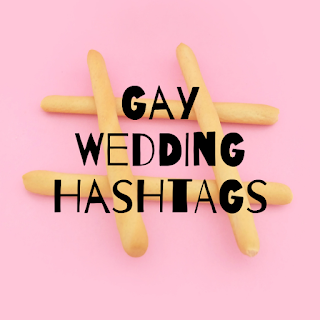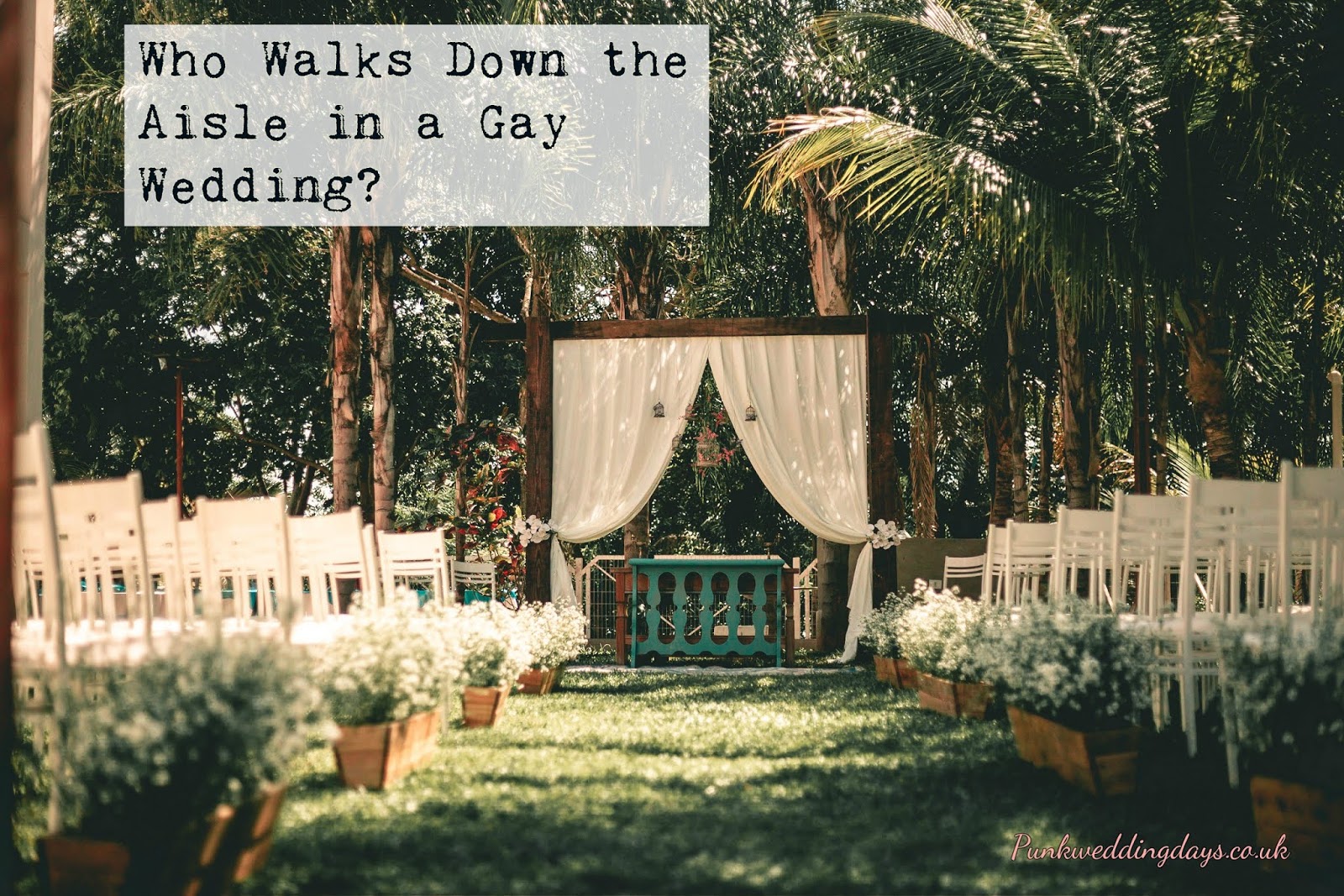Wedding Favours: 5 LGBTQ Charities to Donate to
The average wedding costs around £27,000. Couples could be forgiven for thinking that an invitation is favour enough without adding a small gift on top. Wedding planning is stressful and shopping around for trinkets and tokens to add to place settings can seem an unwelcome drain both on time and budget.
But favours are still popular.
They do make a cute addition to the tables at the wedding breakfast, too, when they’re chosen to complement the reception's overall aesthetic or theme.
They do make a cute addition to the tables at the wedding breakfast, too, when they’re chosen to complement the reception's overall aesthetic or theme.
One of the biggest trends in recent years has been serving retro sweets and chocolates as wedding favours. Sweetie carts and jars where you fill your own bags are a regular feature at receptions and are popular both with younger and older guests. It’s easy enough to find out which sugary treats are fan favourites; you can read the results of a recent survey on the nation’s favourite candies and chocolates here.
But is there still a place for the traditional favour: the small gesture of thanks that sits next to the place setting on the breakfast tables? Or are they just an added expense that modern couples should feel free to avoid?
What is a wedding favour?
Wedding favours originated from bonbonniere’s – small ornate boxes that often had something sweet inside like a sugar cube. In the sixteenth century they were a demonstration of wealth rather than just a token of gratitude but eventually, it became popular to use sugared almonds as gifts for the attending guests. Presented in fives, each almond represented what was believed to be most important in a marriage: fertility, wealth, happiness, longevity and health.
Today, almonds aren’t as popular and couples will find an inexhaustible range of things to choose from instead including wild seeds, fridge magnets, pens, biscuits, macarons, sweets and locally produced jams and honey. Whilst they’re a nice touch, favours are an additional expense that can quickly add up. Worse still, they’re easily forgotten by guests once the tables have been cleared and the confetti swept away. Be honest, how many wedding favours can you recall receiving and genuinely appreciating?
Wedding favours originated from bonbonniere’s – small ornate boxes that often had something sweet inside like a sugar cube. In the sixteenth century they were a demonstration of wealth rather than just a token of gratitude but eventually, it became popular to use sugared almonds as gifts for the attending guests. Presented in fives, each almond represented what was believed to be most important in a marriage: fertility, wealth, happiness, longevity and health.
Making a donation to a charity is a fantastic way of thanking your guests and supporting a worthy cause. Whatever you’re passionate about, there’ll be a charity that would be delighted to receive a contribution. And as a same-sex couple, it might be that there’s a specific LGBTQ charity that’s close to your heart.
Given that civil partnerships have only been legal in the UK since 2005 and gay marriage since 2014, then you’ll be more than aware of the importance of the LGBTQ community; its campaigners, charities and groups were instrumental in facilitating not only the marriage you’re about to make but also in furthering homosexual civil rights over the last few decades.
And we can all agree that there’s still a long way to go.
If you’d like to use your wedding favours to make a donation to an LGBTQ charity on behalf of each guest, then here are 5 charities that you might like to consider.
Given that civil partnerships have only been legal in the UK since 2005 and gay marriage since 2014, then you’ll be more than aware of the importance of the LGBTQ community; its campaigners, charities and groups were instrumental in facilitating not only the marriage you’re about to make but also in furthering homosexual civil rights over the last few decades.
And we can all agree that there’s still a long way to go.
If you’d like to use your wedding favours to make a donation to an LGBTQ charity on behalf of each guest, then here are 5 charities that you might like to consider.
The LGBT Foundation
The LGBT Foundation is a national charity based in Manchester that supports the needs of the LGBTQ community whilst furthering the potential of those who identify under its umbrella. They’re committed to securing a happier, healthier and safe future for their community and they help more LGBTQ individuals than any other charity.
Stonewall
Founded in 1989, Stonewall is one of the most recognised LGBTQ charities in the UK. Created in the devastating wake of Section 28, Stonewall’s mission is “to let all lesbian, gay, bi and trans people, here and abroad, know they're not alone.” With offices in England, Scotland and Wales, Stonewall has worked with successive Governments to ensure that LGBTQ rights are improved and protected, that the community is more visible, and that in institutions, businesses, workplaces and schools, people who identify as lesbian, gay, bi or trans are treated equally.
LGBT Scotland
LGBT Scotland is dedicated to doing amazing youth work with Scotland’s young LGBT community. In a recently released five-year plan, it pledged to promote equality and human rights, to encourage LGBTQ-inclusive education in schools and make sure that volunteers and staff have the skills to ‘deliver the work of LGBT Scotland’.
The Albert Kennedy Trust
The Albert Kennedy Trust was created in 1989 and was the world’s first homeless LGBT charity. In 2012, it opened the Purple Door which was the UK’s first emergency safe house for LGBT young people. Thirty years since it was created, the help that the Albert Kennedy Trust gives is as important as ever. 24% of the UK’s homeless youth identify as LGBT. The Albert Kennedy trust believes that youth homelessness is now the greatest threat to UK LGBT wellbeing.
Mindout
Mind Out is a Brighton based LGBTQ mental health charity with a staff that is all LGBTQ with experience of mental health needs. For those local to Brighton, there’s the option of face-to-face appointments and for everyone else, there’s plenty of support online via chat, by phone or by email. MindOut does not feel that mainstream health services are always in a position to help LGBTQ individuals as the needs and support required can be very specific. They help provide training courses for anyone with access to LGBTQ people, in the hopes of redressing what they see as a real inequality of available help.
Whether you decide to stick to tradition and have a small favour, whether you offer your guests five sugared almonds, whether you donate to charity, or whether you sack the idea off completely, it’s entirely up to you and your partner. Wedding favours are a nice touch but they’re by no means required, and a small donation to charity in lieu of a packet of seeds or macarons may be more representative of your journey to marriage than anything you'll find on Etsy.
Of course, just because you identify as LGBTQ doesn't mean that those charities are where you should donate. Cancer Research, for example, has small trinkets that can be bought with a small donation and given to guests as a wedding favour.
Perhaps charitable donations are something we'll see more of in the future. Last year, the Guardian newspaper reported that The Charity Commission had found that those aged between eighteen and thirty-found tended to give more money to charity than their elders but that they thought about it more carefully.












